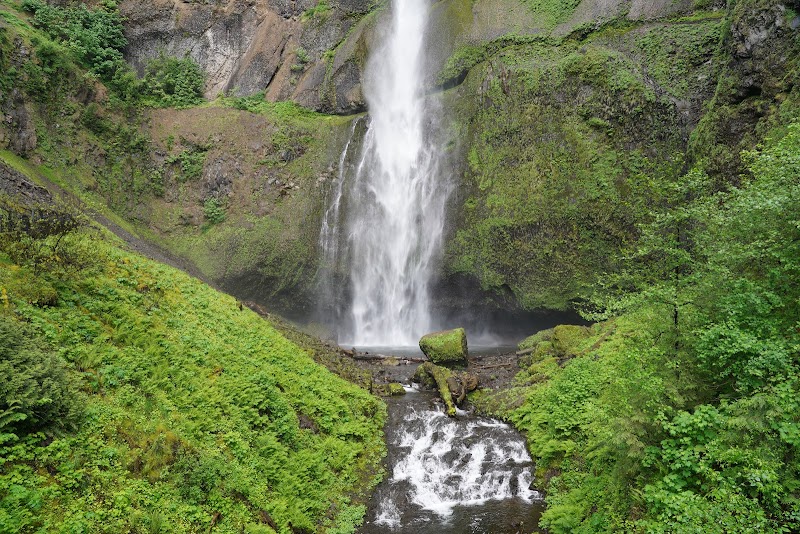
Cornelius Farmers’ Market offers a lively, hands-on experience connecting visitors with Oregon’s freshest produce and local artisans. More than shopping, it’s a practical gateway to the region’s agricultural heritage and natural landscapes, perfect for an adventurous yet grounded day trip.
Arrive Early for Fresh Picks
Vendors bring their best produce early. Arriving before peak hours ensures access to the widest selection and freshest goods.
Bring Reusable Bags
Carry sturdy reusable bags or baskets to manage your purchases efficiently—most vendors don’t provide plastic bags.
Check Weather and Dress in Layers
Weather in Cornelius can change quickly. Dress in layers so you can adapt comfortably, especially in spring and fall.
Consider Alternative Transport
Parking is limited and fills quickly; biking or carpooling can save time and reduce stress.
Discovering Cornelius Farmers’ Market: A Local Adventure of Flavor and Community
Cornelius Farmers’ Market pulses with the energy of fresh Oregon produce and handcrafted goods, inviting visitors to engage directly with the region’s growers and artisans. Located in Cornelius, Oregon, this market is more than a weekend shopping spot—it’s a practical, vibrant gateway to the local landscape and culture.
Each Saturday from mid-April through October, the market opens early morning, transforming the city park into a lively hub where nature’s best meets human hands. Bright, crisp apples, earthy mushrooms, freshly harvested greens, and richly colored berries stand ripe against the backdrop of the Coast Range foothills. Vendors, always ready with advice, share tips on how to store and prepare seasonal foods, empowering visitors to extend the market’s bounty into their daily routines.
While the market’s charm is its bounty, the experience also offers a clear window into the region’s agricultural rhythms. Many farms rely on sustainable, small-scale practices that require respect and care—qualities reflected in the vibrant health of the market’s offerings. Local chefs occasionally attend, demonstrating simple cooking techniques that turn fresh ingredients into satisfying meals, a practical angle that reinforces the market’s role as a community resource.
For those eager to explore beyond the stalls, the nearby streets reveal historic buildings and public art that echo Cornelius’ agricultural roots. This creates a striking contrast to the natural world just beyond town, where gentle hikes in the Coast Range offer cool, forgiving trails through fir and cedar forests. If time allows, combining a Saturday morning market visit with an afternoon hike makes for a well-rounded Oregon day.
Planning a visit means preparing for the essentials: compact reusable bags for purchases, cash for vendors who prefer it, and timing arrivals early to catch the freshest produce and avoid mid-morning crowds. Parking is accessible but fills quickly; carpooling or biking are practical alternatives. Weather in the Willamette Valley can shift quickly—check forecasts and dress in layers to stay comfortable.
Cornelius Farmers’ Market is an adventure in the practical sense—an invitation to engage directly with food’s origin, local community, and natural rhythms. It stakes its excitement in authenticity and approachability, drawing a balance between discovery and daily living. The market is an open door to Oregon’s outdoors, its people, and the ongoing story of land nurtured by those who work it with care.
Nearby Trips
All Adventures
Boat Charters
Water Activities
Adventures near Cornelius, Oregon
Discover the unique and memorable adventures that make Cornelius, Oregon special.
Frequently Asked Questions
Is there parking available at the Cornelius Farmers’ Market?
Yes, there is parking near Cornelius City Park where the market is held, but spots fill quickly, especially during peak season and weekends. To avoid parking hassles, consider arriving early or using alternative transportation like biking or ride-sharing.
Can I pay with credit or debit cards at the market?
Many vendors accept cards, but it’s advisable to carry some cash as smaller vendors may be cash-only. Additionally, the market supports Supplemental Nutrition Assistance Program (SNAP) benefits via the Oregon Trail card.
Are pets allowed at the farmers’ market?
Pets are generally discouraged due to the close proximity of food displays and crowding. Service animals are, of course, welcome. Check current market guidelines before bringing pets.
What sort of local products can I expect besides produce?
Cornelius Farmers’ Market features a range of local goods including artisanal breads, cheeses, honey, flowers, and handcrafted items—offering a wider taste of local craftsmanship and resources.
Are there opportunities for learning or events at the market?
Yes, occasionally the market hosts cooking demonstrations, seasonal festivals, and workshops focusing on sustainable agriculture and local food traditions. Check the market’s official calendar for events.
What wildlife might I spot near Cornelius on a visit to the market?
While the market itself is urban, nearby green spaces and waterways attract birds like herons and kingfishers, as well as small mammals native to the Willamette Valley.
Recommended Gear
Reusable Shopping Bags
Durable bags or baskets ensure you can carry fresh produce and products safely without waste.
Comfortable Walking Shoes
The market involves walking on paved and unpaved surfaces; supportive footwear maximizes comfort.
Layered Clothing
Spring mornings can be chilly, with warmth growing by midday—layers help regulate comfort.
Water Bottle
Staying hydrated is critical during busy summer market days exposed to direct sunlight.
Local Insights
Hidden Gems
- "Lee Farms Brew & Vine for local cider tasting just minutes from the market"
- "Historic Cornelius Downtown Murals offer a window into the area’s agricultural past"
- "Nearby Gales Creek Trail offers peaceful hikes amid native Oregon forest"
Wildlife
- "Great Blue Heron"
- "Anna's Hummingbird"
- "River Otters in local waterways"
- "Black-tailed Deer"
History
"Cornelius’ farming roots trace back to early 20th century settlers, with the market reflecting a tradition of small-scale, sustainable farming that sustains the community’s economy and culture. The market site sits close to landmarks that tell stories of agricultural development and winemaking in Oregon’s Willamette Valley."
